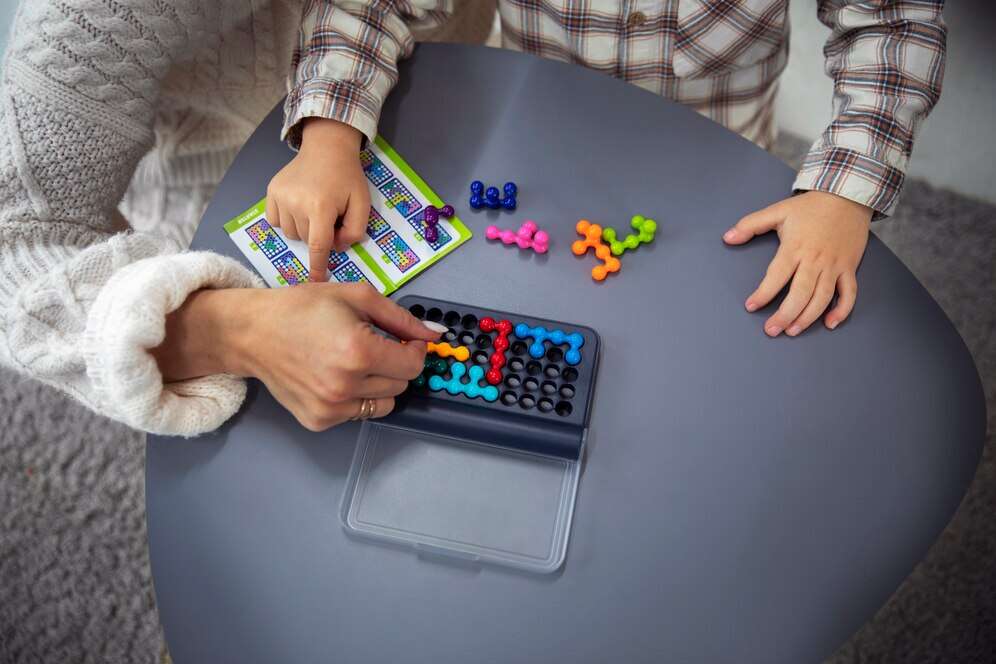

As a parent, it’s easy to get caught up in the whirlwind of choosing the "right" toys for our kids. With endless options out there, it’s hard to know what’s truly beneficial for their growth. A lot of parents (myself included) have fallen into the trap of buying toys that seem fun but don’t necessarily help with learning or skill development. But here’s the thing—STEM toys are different.
STEM (Science, Technology, Engineering, and Math) toys are not just about fun and games—they’re about preparing your child for the future. I can tell you from my experience, investing in these toys early on can have a huge impact on your child’s learning journey. Let’s dive into why STEM toys are a must-have in every child’s toy box—and why you should start investing in them now.
Before we get into the details, let’s break down exactly what STEM toys are. Simply put, STEM toys are educational tools designed to teach kids fundamental concepts in science, technology, engineering, and mathematics. But here's the key: they do this in a fun, hands-on way. This means that kids don’t just read about concepts like gravity, coding, or construction—they experience them.
As I’ve learned over the years, kids don’t always realize they’re learning when they’re playing with STEM toys. And that’s the beauty of it! Instead of sitting down with flashcards or worksheets, they’re experimenting with real-world concepts. For example, when my daughter was younger, we got her a set of magnetic building blocks. She’d spend hours creating all kinds of structures, learning about balance, shapes, and symmetry—without even realizing it.
This kind of learning is way more effective than passive activities like watching TV or playing with toys that don’t challenge the mind. STEM toys engage children on a deeper level, fostering problem-solving, critical thinking, and creativity—all while having fun.

Let’s face it: the world is changing, and so is the way we work and live. The jobs of tomorrow—those in tech, robotics, and artificial intelligence—require a deep understanding of STEM principles. The earlier kids are exposed to these fields, the more likely they are to pursue them. And it’s not just about landing a high-paying job in the future. STEM education builds essential life skills that transcend any career path.
My best friend’s son, Eli, is obsessed with tech. At 7 years old, he’s already learning how to code and program basic robots. When he was younger, my friend started him with STEM toys like coding robots and building kits. It’s incredible to see how comfortable he is with technology now, especially considering that many adults still shy away from it. By giving Eli access to these toys early on, my friend set him up for success—not just in school but in a tech-driven world.
Did you know that research has shown children exposed to STEM concepts early are more likely to pursue these subjects later on? This isn’t just about preparing your kid for a future job, though. It’s about giving them the tools they need to succeed in an increasingly complex world. Whether your child becomes a scientist, a teacher, an artist, or a stay-at-home parent, STEM skills—like critical thinking and problem-solving—are universally valuable.
As a parent, I get it. We’re juggling work, school, extracurriculars, and a million other things. But here’s the deal—STEM toys are the perfect investment for parents who are busy but still want to give their kids an educational edge.
I always joke that STEM toys are like the Swiss army knives of play. They aren’t just for entertainment; they serve multiple purposes. Take, for example, the coding robot I mentioned earlier. Not only does it teach kids about programming, but it also encourages spatial awareness, creativity, and even basic math skills—all while they’re playing! You’re essentially getting multiple hours of learning out of just one toy.
I know how challenging it can be to find time for everything. But what I love about STEM toys is that they often don’t require constant adult supervision. With interactive learning kits, your child can dive in, explore, and learn on their own. Of course, it’s always nice to join in on the fun, but STEM toys are designed to encourage independent play. And let’s be real—anything that gives us a few minutes of peace is a win!
When it comes to buying STEM toys, it’s important to pick ones that match your child’s age and developmental stage. Fortunately, there are so many great options out there for every age group.
At this age, it’s all about building basic skills like hand-eye coordination, problem-solving, and an understanding of shapes and colors. Look for building blocks, stacking toys, and simple puzzles. One of my son’s favorites when he was younger was a shape-sorting toy that helped him learn about geometry in a playful way.
As your child approaches school age, you can introduce more advanced concepts like basic coding and early math. Think of toys like beginner coding kits or interactive robots that allow your child to solve simple challenges. My daughter loved a set of magnetic tiles that she could use to build structures and patterns, which helped her develop spatial reasoning skills.
For kids who are a bit older, consider more complex toys that encourage experimentation, engineering, and deeper learning. Robotics kits, 3D puzzles, and chemistry sets are fantastic options. These toys not only keep kids engaged but also provide hours of creative, educational play.
STEM toys don’t just teach facts—they help kids think. The key to their effectiveness lies in how they engage both the body and the mind.
According to research, active learning through play enhances cognitive development. STEM toys encourage kids to ask questions, experiment, and engage with the material in a hands-on way. For instance, when kids work with construction kits or build robots, they aren’t just putting pieces together—they’re learning about engineering principles, problem-solving, and cause and effect. This type of learning is proven to improve memory retention and critical thinking skills.
Another benefit of STEM toys is that they help children develop soft skills like persistence and emotional regulation. When my son was first learning to build complex structures with his magnetic tiles, he got frustrated several times because the pieces wouldn’t stay together the way he wanted. But through trial and error, he learned to keep going, refining his designs until they worked. That persistence is a skill that will serve him well in school and later in life.
STEM toys don’t just teach technical skills—they also foster important life lessons. I’ve seen firsthand how they can shape my kids’ character and spark their creativity.
The best part of STEM toys is how they fuel curiosity. Instead of waiting for information to be handed to them, kids actively seek out answers. Whether they’re trying to figure out how a toy works or experimenting with new designs, they’re always asking questions and exploring possibilities.
Soft skills like teamwork, patience, and communication are often overlooked in the pursuit of academic success. But these skills are just as important! STEM toys provide opportunities for children to develop these traits in a natural, playful way. Whether they’re working together on a puzzle or figuring out how to build a robot, kids learn how to collaborate, communicate, and persist through challenges.
The world is changing fast, and the skills your child learns today will shape their future. STEM toys are more than just a passing trend—they’re an investment in your child’s intellectual, emotional, and creative growth. The earlier they start exploring STEM concepts, the more equipped they’ll be to handle the challenges of tomorrow.
So, if you haven’t already, now’s the time to make that investment. Grab a few STEM toys today, and watch your child’s imagination and critical thinking skills soar!
We at YiwugoMU have a wide variety of children's STEM toys to offer, please contact us if you are interested.
Email format error
Email cannot be empty
Email already exists
6-20 characters(letters plus numbers only)
The password is inconsistent
Email format error
Email cannot be empty
Email does not exist
6-20 characters(letters plus numbers only)
The password is inconsistent